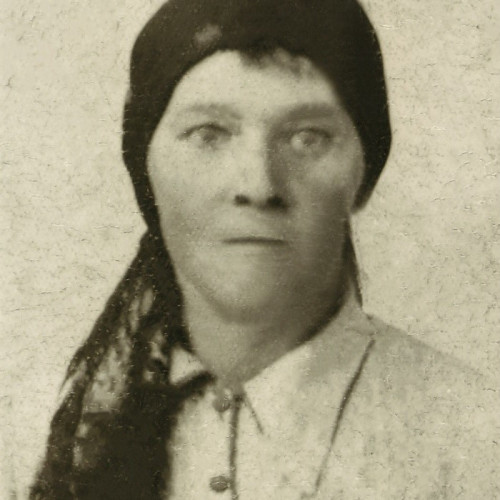Zofia Kur - Instytut Pileckiego

In June 1943, three Jews came to the farm of Zofia Kur. They escaped from one of the labor camps in Minsk Mazowiecki. They asked for shelter. Their names were: Leyzor Matuszewski, Berek Szafir and a unknown man
Zofia Kur decided to provide them with a hiding place, although helping Jews was punishable by death. The woman lived with her children Jan (21), Aleksander (18), Stefan (12) and Krystyna (7) in Gamratka, located near Mińsk Mazowiecki. The Kur family made their living by working on the land. The family's financial situation was difficult, as Stanisław Kur, Zofia's husband, was sent to forced labor in the Third Reich. The Jews' hiding place was in a backyard dugout. During the day, the men stayed mainly in the woods; they came to the farm to spend the night. Faced with increasing difficulties with food, Berek Szafir decided to write to Jan Kamiński, a pre-war friend. He asked for the return of some of the money the Jews had left with him for safekeeping. It is worth noting that during the occupation, Kamiński also took over the shlamiarka belonging to Mechl Szafir, Berek's father. The letter was carried by Zofia Kur. Kamiński, after reading it, was to make a note of the address where the Jews were staying. He also promised to bring the money himself the next day. Unfortunately, instead of the promised help, on the morning of July 27, 1943, German gendarmerie and police arrived at Zofia Kur's farm. The action was commanded by Friedrich Gutberlet, who served as deputy commandant in Mińsk Mazowiecki and was known among local residents for his cruelty. Among other things, he was responsible for the death of Kazimierz Przekora and three Jews, unknown by name, who were murdered in 1943 in Huta Mińska. Gutberlet ordered a number of local farmers to met him at Kur's farm. According to witnesses, the Germans surrounded the house and knocked on the window. Zofia and her son Aleksander were in the house. Her other children were staying with family in the village of Karolina. When the woman went outside, the question was asked if she was hiding someone. Zofia denied. At that point, the gendarmes proceeded with the search. Their attention was drawn to the potato cellar located in the backyard. The Germans began throwing grenades at it. Amid the roar of explosions, the screams of murdered people rang out. Gutberlet gave the order to remove the branches covering the entrance to the hideout and pull out those in hiding. Two of them were seriously injured, and one was probably already dead. The Jews were reviewed, after which their interrogation began. The men did not rat out their aides. They claimed to have spent only one night here, without the landlady's knowledge. After the interrogation, Gutberlet personally shot them. Then the gendarmes ordered Aleksander Kur and one of the assembled villagers, Stanisław Frelak, to dredge the partially buried dugout. When they decided that the pit was deep enough, Frelak was allowed to come out of it, while Alexander was killed with a pistol shot. Jews who had been murdered earlier were also thrown into the grave. At the same time, Gutberlet forced Zofia Kur to go home with him. The gendarme ordered Zofia to bend down and take things from under the bed. When she obeyed the command, Gutberlet shot her. The Germans then proceeded to loot the livestock. When they took the more valuable items, they set fire to the farm. After committing the crime, the gendarmes threatened the assembled farmers that if they found out that more Jews were hiding in the village, they would shoot the residents and burn the houses, as they had done to the Kur family. The bodies of the murdered Jews were buried at the crime scene. The bodies of Zofia and Alexander Kur were laid to rest at the cemetery in Mińsk Mazowiecki.
Click here to read about Commemoration in Gamratka 21.09.2023.